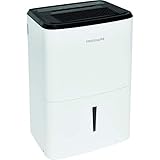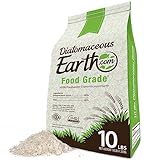With their beautiful chirping, crickets are best appreciated from afar. However, if they get into your home or infest your yard, their constant noises can be irritating, and they may even damage your property. Luckily you can use some everyday household products and natural remedies to keep your crickets at bay.
How to get rid of crickets naturally? To get rid of crickets naturally, you can use home remedies like salt, chili powder, vinegar, molasses, and dish soap, as well as natural insecticides like diatomaceous earth and boric acid. You can also practice preventative maintenance by using a dehumidifier and removing standing water
This article will talk more about how you can eliminate crickets and keep them from coming back. Additionally, it will give you some recipes and tips for making home remedies to fight crickets, as well as some product recommendations so that you can say goodbye to pests.
Why Do I Have Crickets in My Yard or House?
Crickets are probably living in your property because it provides them with shelter, food, and water. Every animal finds it easier to survive when they are outdoors.
Exceptionally comfy places free from predators with minimal traffic and motion are preferred by crickets. They will undoubtedly favor quiet, shaded sections of your home, particularly in unoccupied areas.
Crickets may enter your home through gaps in the windows and spaces under your doors at first for the heat. These pests can also be attracted by spilled food, water leaks, or moisture that collects due to mist in a particular area of your home .
How To Stop Attracting Crickets?
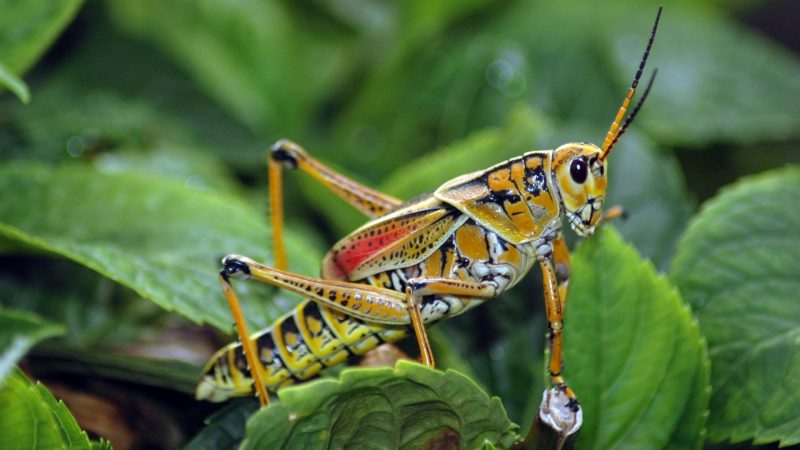
There are two major types of crickets that are attracted to humans. Camel crickets, also known as spider crickets, are large and hump-backed. House crickets are smaller and yellowish-brown.
These two types of crickets are attracted to different things, so it is crucial to identify your cricket pests to eliminate them.
To stop attracting camel crickets, use a dehumidifier in damp areas in your home and eliminate small crevices where they congregate. For house crickets, keep bright lights off when you aren’t using them, and use curtains to make your house unattractive to them.
Camel crickets like to live in dark, damp spaces. Outdoors, you will find them in woodpiles, under stones, in holes, and in densely planted areas. Indoors, they prefer moist spaces like vents, basements, garages, and concrete structures.
To stop attracting camel crickets, use a dehumidifier where the crickets seem to gather. Keeping these areas dry will force the crickets to find another space to live, getting them out of your home.
- Easy-to-Clean Washable Filter: Capture dust from the air and keep...
- Custom Humidity Control: Maximize your comfort with customized...
- Continuous Drain Option: Skip emptying the water bucket -- this...
- Automatic Shut Off: Unit shuts off automatically when the water...
- Front Loading Bucket with Carrying Handle and Splash Guard: A...
To get rid of their favorite hiding spaces, keep boxes and debris away from walls, keep woodpiles away from your doors and windows, and weed-eat often.
Light attracts house crickets, so if you want to keep them out of your yard and home at night, you may need to limit the amount of light you use. Turn off outdoor lights when you are not using them, and cover windows with curtains at night to keep crickets from coming too close for comfort.
How to Get Rid of Crickets Naturally?
1. Keep Your Yard Trimmed and Neat
An effective preventive technique to keep crickets away is to keep the exterior of your home clean. make sure that plants and trees are carefully pruned.
Keep garbage cans far from the home, routinely trim tall grass, and put firewood at least 20 feet from it. All of these are typical spots for outside cricket infestation..
2. Grow Nitrogen-Fixing Plants
Plants or flowers are a favorite food of crickets. Experts advise growing nitrogen-fixing plants because they take nitrogen gas from the air and keep it in roots, thereby preventing animals from eating it.
Peas, beans, and other legumes are among them. Garlic, clover, cilantro, sweet potatoes, and sweet peas can all be planted in the yard to irritate pests and keep them away.
3. Shut Down Entry Points
Sealing all entrances is the first step to keeping crickets out of your home. The spaces between door bottoms and floors need to be sealed. Keep garages in mind as well! Crickets frequently gain more passage through the house after they enter a garage.
Moisture is attractive to crickets. So, prevent accumulation of moisture by venting attics and basements and fixing any leaky air conditioning or piping systems.
4. Natural Predators
For other creatures, crickets provide for simple prey. Dogs and cats will patrol their domain in accordance with their natural inclinations, including joyfully getting rid of pests inside your home. To help further, put a bird feeder in your garden because birds will eat whatever cricket they see.
5. Make a Natural Cricket Repellent
Prepare a solution with two cups of water, a few drops of dish detergent, and fresh or dried spicy chilies to ward off crickets. Spray in the direction of, but not directly on, plant leaves and soil while donning protective gloves, glasses, and a mask. For a stronger mixture, you can also add smashed cloves of garlic to the chile.
6. Lights
Because they enjoy the light, insects may gather outside your doors at night. They are drawn to the inviting warmth of porch lighting and appear to interpret it as an open encouraged to your property. The typical bulbs can be replaced with LED or amber illumination, which won’t be as likely to entice insects.
7. Vacuum Regularly
Crickets can be eliminated in your home with a vacuum. Additionally, it will assist you in removing cricket eggs, which are small and difficult to see. Be careful to take out the vacuum bag and put it in an outdoor garbage can that is sealed. You should concentrate on warm, wet locations like restrooms and garages.
8. Plant-Based Insecticide Sprays
- Start killing ants, roaches, spiders, fleas and ticks with Ortho...
- This insect control spray kills listed bugs and protects your...
- Use this indoor insect spray in kitchens, bathrooms and...
- Create an insect barrier anytime as a preventative treatment or...
- Apply Ortho Home Defense Max Indoor Insect Barrier using the...
- Ortho Home Defense Insect Killer for Indoor & Perimeter2 kills...
- This insect killer spray provides a long-lasting bug barrier of...
- Use this pest control spray indoors in kitchens and bathrooms or...
- Apply this bug killer anytime as a preventative treatment or...
- This 1.33 gal. container of Ortho Home Defense Insect Killer for...
- Ortho Home Defense Insect Killer for Indoor & Perimeter Refill2...
- This insect killer spray provides a long-lasting bug barrier of...
- Use this pest control spray indoors in kitchens and bathrooms or...
- Apply this bug killer anytime as a preventative treatment or...
- This 1 gal. Ortho Home Defense Insect Killer for Indoor &...
Sprays made of plant-based insecticides are a practical way to get rid of pests. Crickets will be instantly killed upon touch, and the lingering oil odors will aid in repulsion.
As an additional precaution, you might also spray popular entryway sites. Apply on the border of your property to establish a barrier of defense. It not only repels crickets indefinitely, but it also kills them immediately upon touch.
How To Naturally Get Rid of Crickets? | Step-by-Step Guide
When it comes to getting rid of crickets, you will never need to use harmful pesticides and chemicals that could put your health at risk.
To eliminate crickets naturally, seal holes in window screens and foundations, eliminate small covered areas where crickets like to hide and use traps like molasses to kill them.
So, let’s get into the specifics. Here is the step-by-step guide to eliminating crickets from some of their favorite places.
How To Get Rid of Crickets Outside House Naturally?
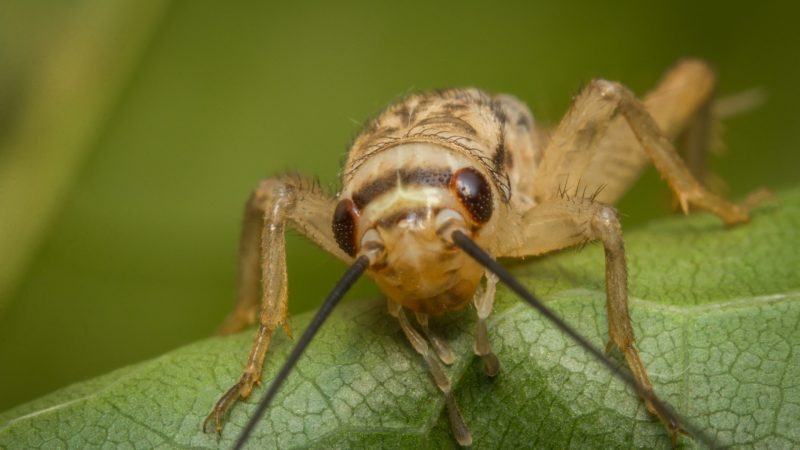
If you don’t want crickets to infest your yard, you may want to keep it as clean and trimmed as possible. Crickets like to hide, and they rarely come out in the open during the daytime, so eliminating cracks and crevices in your outdoor areas will prevent crickets from invading your outdoor spaces.
To naturally get rid of crickets outside:
Step 1: Weed areas near doors and the sides of your house. This is to eliminate crickets’ favorite hiding spots.
Step 2: Keep woodpiles far from your home.
Step 3: Ensure that your outdoor garbage cans close tightly. Keep them clean since the smell attracts crickets.
Step 4: Keep your gutters and irrigation systems clear of standing water and debris.
Step 5: Sprinkle the perimeter of your yard with borax or diatomaceous earth to kill crickets on contact.
Related: How to Get Rid of Cave Crickets?
Natural Way To Get Rid of Crickets in the House
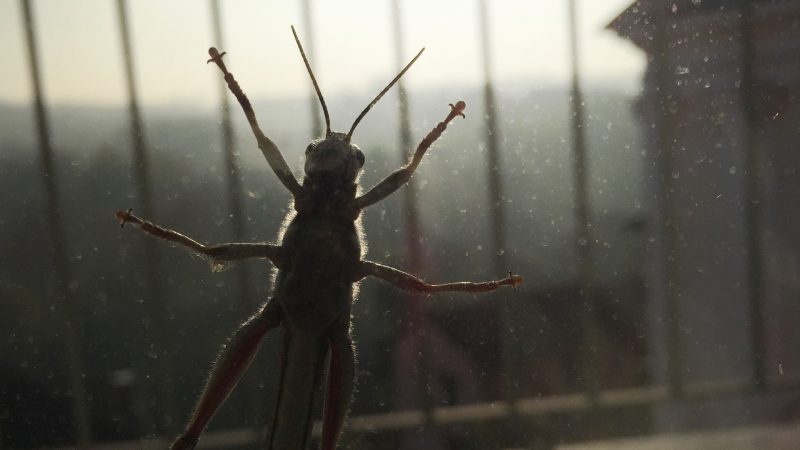
Having crickets in your house may seem fine for the first couple of hours, but before long, the constant chirping is annoying enough to make anyone desperate for some foolproof home remedies for getting rid of insects.
Having crickets in your home isn’t just annoying, though. House crickets eat animal fibers like wool and silk, so they might damage your favorite fabrics. They also carry many diseases, and they bite.
To get crickets out of your house and keep them out permanently:
Step 1: Check that all of your doors and window screens are tight-fitting.
Step 2: Seal any holes or cracks in your foundation. You should use it anywhere crickets may use to enter your home with silicone caulk.
Step 3: Vacuum thoroughly to remove eggs, feces, and dead crickets.
Step 4: Keep your doors and windows closed at night. Limit your use of bright lights at night and use curtains since house crickets gravitate towards light.
Step 5: Set cricket traps like molasses traps or sticky paper.
Step 6: Pour diatomaceous earth on the outside of your windows and doors or in cracks and crevices where crickets might gather.
Related: How to Get Rid of Spider Crickets?
How To Get Rid of Crickets in Basement Naturally?

If you have crickets in your basement, they are likely camel crickets. They like dark, damp spaces, making your basement an ideal home for them. Still, there are many ways to make your basement unattractive to them:
Step 1: Keep boxes, stacked items, and debris away from the walls. This is to leave crickets exposed.
Step 2: Use a dehumidifier in your basement to make it unwelcoming to camel crickets.
Step 3: Set a molasses trap behind or underneath furniture. Spray the room’s perimeter with chili-garlic cricket repellent (keep reading for the recipes).
Step 4: Use sticky traps or sprinkle diatomaceous earth around the basement’s perimeter to kill crickets.
Best Home Remedies for Crickets
If you want to get rid of crickets, you probably already have something in your home that will do the trick.
As a pet owner and a parent, using harmful chemicals and insecticides around your home is not always an option. That’s why you should use these effective, low-cost, family-friendly cricket killers.
Related: How To Get Rid of Grasshoppers and Locusts?
Molasses Cricket Trap

Molasses is sweet and super sticky, which makes it perfect for baiting a cricket trap. To make a molasses trap:
Step 1: Fill a bowl, wide-mouthed cup, or jar ⅔ of the way with water.
Step 2: Mix molasses to the water. Add two or three tablespoons of molasses to the water.
Step 3: Set the trap on the floor near the crevices and cracks where you have seen crickets hiding.
This trap works wonders for killing crickets, and it is entirely pet and child-safe. The trap works because the molasses will stick to the crickets, making it hard for them to jump out of the water. The more the cricket tries to get out, the more stuck it gets, and eventually, it will drown in the water.
Garlic and Chili Powder Natural Cricket Spray
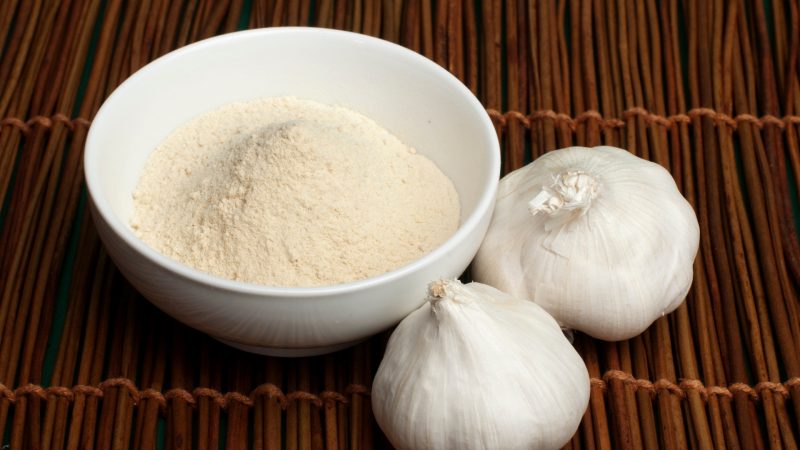
Chili and garlic powder are not just great cooking spices. They are also great tools to use against crickets.
That’s because the capsaicin in the peppers, which is what makes them spicy, will burn the sensitive exoskeleton of crickets, repelling them and potentially killing them. Garlic also burns crickets and repels them with its scent, so this combo makes a powerful bug repellent.
To use chili and garlic powder against crickets, you can sprinkle some around the perimeter of your lawn and in doorways. You can also make cricket-killing and repelling bug spray with some dish soap, chili powder, garlic powder, and water.
To make chili garlic cricket spray, mix in a spray bottle:
- 2 tablespoons chili powder
- 2 tablespoons garlic powder
- 1 tablespoon of biodegradable dish soap like Dawn or Dr. Bronner
- 1 cup water
Let the mixture sit overnight so that the powder has time to infuse the water. You can use this under furniture, in your garden, around doors or windows, and anywhere else that you want to repel and kill crickets.
Salt and Vinegar Cricket-Killing Spray
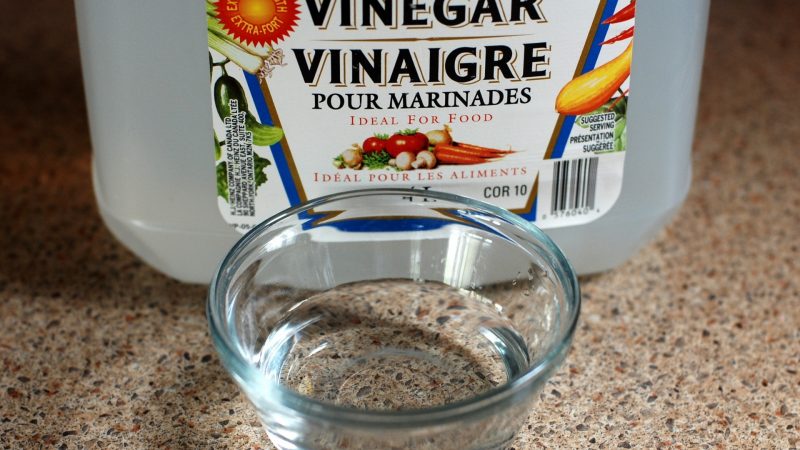
Vinegar and salt are so acidic that they will dehydrate and kill crickets. To make salt and vinegar spray, mix in a clean spray bottle:
- 3 tablespoons of salt
- 1 cup of water
- (Optional): 3 Tablespoons of lemon juice
Best Products for Getting Rid of Crickets
If you want to get rid of crickets for good, you may want to keep some of these handy bug-killers on hand. Purchasing pest-control products isn’t always what people want to spend their money on, so that’s why this list only includes traps and insecticides that are natural, eco-friendly, and work on many other types of insects.
Here are some of the best products for getting rid of crickets on Amazon:
Best for Outdoors: DiatomaceousEarth DE10
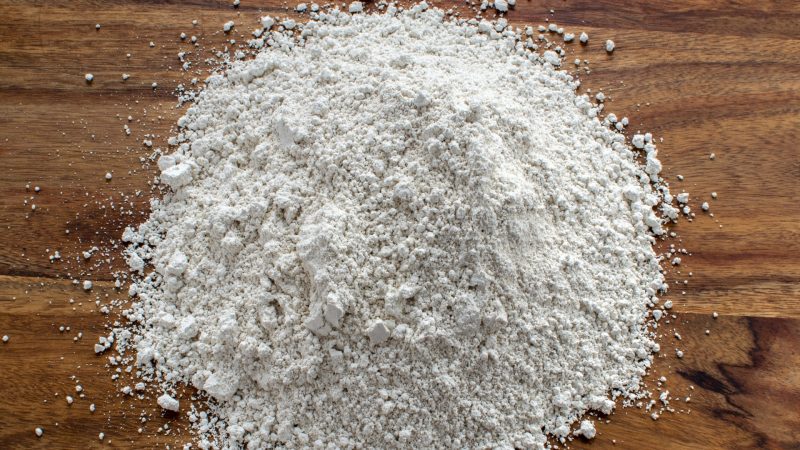
This organic freshwater-sourced diatomaceous earth is such a go-to outdoor insecticide. It is food-grade and pet-safe, which makes it safe enough to use on your mattresses, in your kitchen, and around your garden.
Diatomaceous earth kills many types of insects, including fleas and bed bugs, too, so you can always use it for any pest problem you might have.
- OMRI Listed - Listed with the Organic Minerals Research...
- Natural Product - Composed of 10lbs of 100% ground freshwater...
- Vegan-Keto-Gluten Free
- Diatomaceous Earth is a natural source of freshwater amorphous...
Still, use this for outdoor applications. That’s because inhaling the dust from diatomaceous earth can cause respiratory issues in humans and pets. However, if you have a large-scale infestation indoors, using diatomaceous earth is one of the most effective natural insecticides that you can use inside your home.
Related: Diatomaceous Earth Uses as a Natural Pesticide
Best for Indoor Living Spaces: Catchmaster Pest Trap
- READY TO USE: Max-Catch Glue Traps are pre-scented to attract...
- YEAR ROUND PROTECTION: Catchmaster glue traps are safe, non-toxic...
- SAFE FOR THE FAMILY: Designed to help you keep your family...
- TOTAL COVERAGE: Mouse traps can be used indoors in residential,...
- INTELLIGENT PEST MANAGEMENT: At our core, we are dedicated pest...
These sticky cricket traps are perfect for basements, living rooms, bedrooms, and other areas that you frequently move through.
Unlike other sticky cricket traps, these wrap around themselves, making a little box that won’t get stuck on your fleet if you step on them. You can easily slide them under furniture and in those hard-to-reach spots where crickets like to live.
You also won’t have to look at the crickets once they get stuck, making disposal easy, even if crickets make you feel squeamish.
Best for Basements: Niban Nisus FG Granular Bait
- EFFECTIVE AGAINST MULTIPLE SPECIES: Specifically attracts ants...
- WEATHER-RESISTANT GRANULES: Designed to withstand rain, heat, and...
- NO KNOWN RESISTANCE: Formulated with boric acid, this bait...
- SAFE FOR USE AROUND HOMES: It is ideal for both residential and...
- EASY-TO-USE COMFORT GRIP CONTAINER: This container features a...
These granular pellets use boric acid and sugary food bait to kill crickets in a matter of days. They work exceptionally well for infestations since one application does the trick.
Use these pellets in damp spaces where camel crickets gather since you can just close the door and let them all die.
It is safe for indoor and outdoor use, but you should keep pets away from it to stay on the safe side since it is sugary bait, after all.
How To Keep Crickets Away Naturally?
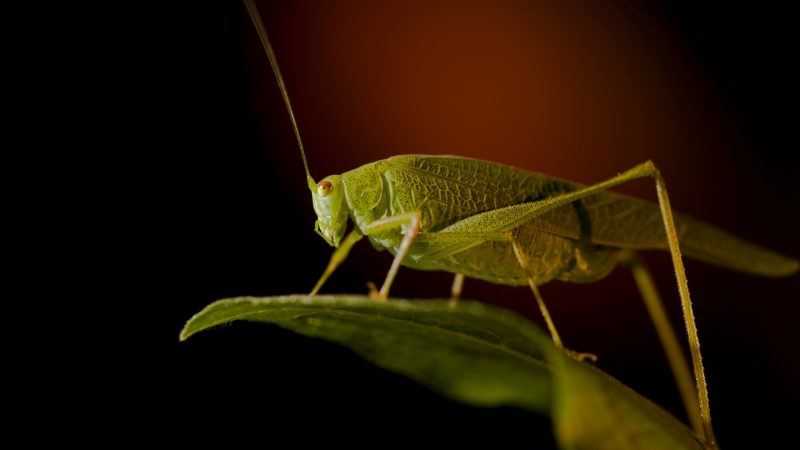
Preventing crickets is the best way to keep them from infesting your spaces. More ways to prevent crickets from setting up camp in or around your home include:
- Keep pet food in airtight containers.
- Use peppermint essential oil or lemon-scented cleaning products to repel crickets.
- Keep your home clutter-free to keep crickets from living beneath debris.
List of Sources
Hahn, J., Ascerno M. (2019). (2018). Crickets. University of Minnesota Extension.
Sanders D., Houseman, R. (2015). House-Invading Crickets. The University of Missouri Extension.
Bradley, L., Gibson, R. (1998). Cricket Management. University of Arizona.
Gałęcki, R., Sokół, R. (2019). A parasitological evaluation of edible insects and their role in transmitting parasitic diseases to humans and animals. Plos One Journals.
- Bed Bug Surge 2025: How to Detect, Prevent, and Safely Eliminate Infestations in Top U.S. Cities - June 18, 2025
- Asian Needle Ants Invade US Homes: 2025 Guide to Identification, Risks, and Effective Control - June 11, 2025
- New World Screwworm Alert: How US Livestock Owners Can Prevent Outbreaks and Protect Herds [Summer 2025 Update] - June 8, 2025

